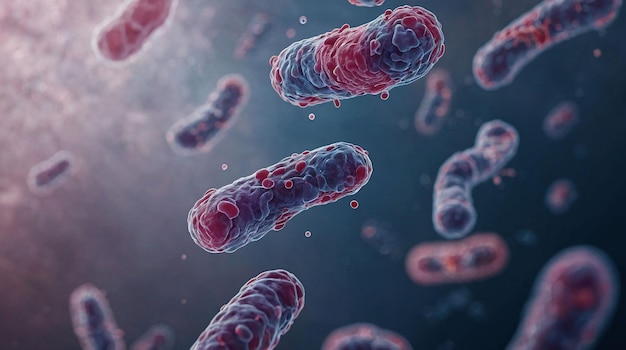
Ever wondered why your belly is like the control center for your well-being? It’s all about the gut microbiome – the lively community of tiny organisms in your stomach. Think of it as a vibrant neighborhood where good bacteria are like friendly neighbors, working hard to keep things balanced.
This community is crucial for our health, influencing everything from digestion to our immune system. Let’s dive into why a healthy gut microbiome is so important and how it acts like a team of superheroes inside you, keeping everything running smoothly.
The gut microbiome is like a bustling city within our digestive system, home to a diverse array of microorganisms. These tiny residents, both good and bad, coexist in harmony, creating a complex web of interactions that impact our health.
One of the main jobs of the gut microbiome is helping with the digestion and absorption of nutrients. Good bacteria break down complex carbs, making it easier for our intestines to absorb essential nutrients. A healthy gut microbiome ensures our body gets the nutrients it needs to function well, contributing to our overall well-being.
A strong immune system is key to defending our body against illnesses, and the gut microbiome plays a big role in supporting immune function. Good bacteria in the gut help train the immune system to distinguish between friends and foes, promoting a more effective response to invaders. A healthy gut is essential for a strong and resilient immune system.
Interestingly, the gut microbiome is also linked to our mood and mental health. The gut-brain axis, which is the communication system between the gut and the brain, allows constant interaction. Some gut bacteria produce neurotransmitters like serotonin, which is known as the “feel-good” neurotransmitter. An imbalance in the gut microbiome is associated with mood disorders such as anxiety and depression.
Keeping a healthy weight and proper metabolism is crucial for our overall well-being, and the gut microbiome influences these factors. It plays a role in extracting energy from food and regulating metabolism. Imbalances in the gut microbiome have been linked to conditions like obesity and metabolic syndrome. Maintaining a diverse and healthy gut can positively impact weight management and metabolic health.
The gut microbiome acts as a barrier, preventing harmful pathogens from invading. Good bacteria in the gut compete with harmful microorganisms for resources and produce substances that inhibit the growth of pathogens. A well-balanced gut microbiome is a strong line of defense against infections, reducing the risk of gastrointestinal and other infections.
Given how important the gut microbiome is for our health, it’s essential to adopt habits that support its well-being. Eating a diet rich in fiber and diverse plant-based foods helps nourish good bacteria. Probiotics, found in fermented foods like yogurt and kimchi, can introduce additional beneficial microbes.
The gut microbiome also helps regulate inflammation, which is the body’s natural response to injury or infection. Chronic inflammation, however, is linked to various health issues, including autoimmune disorders and certain chronic diseases. The gut microbiome influences the balance of immune responses, contributing to anti-inflammatory processes, which helps reduce the risk of chronic inflammatory conditions.
Our gut microbiome is also involved in the balance of hormones, especially related to reproductive health. Imbalances in the gut microbiome are linked to conditions like polycystic ovary syndrome (PCOS) and infertility. Keeping a healthy gut microbiome may help maintain hormonal balance and support reproductive well-being.
A diverse gut microbiome is key to its health. A varied diet, exposure to different environments, and a balanced lifestyle contribute to this diversity, making the microbiome more resilient to disruptions and reducing the likelihood of health issues.
Understanding the long-term benefits of a healthy gut microbiome is essential for preventing chronic diseases. Research shows that imbalances in the gut microbiome are linked to conditions such as diabetes, heart disease, and certain cancers. By prioritizing gut health through diet and lifestyle, individuals can potentially lower their risk of chronic diseases and improve their overall well-being and longevity.
In conclusion, our gut health is vital for keeping us in good shape. A happy, healthy gut microbiome isn’t just about digestion—it’s like having a team of superheroes inside us, fighting off bad stuff and keeping everything balanced. So, let’s take care of our gut by eating nutritious food, staying hydrated, and appreciating it for the VIP it truly is. A happy gut means a happy you!